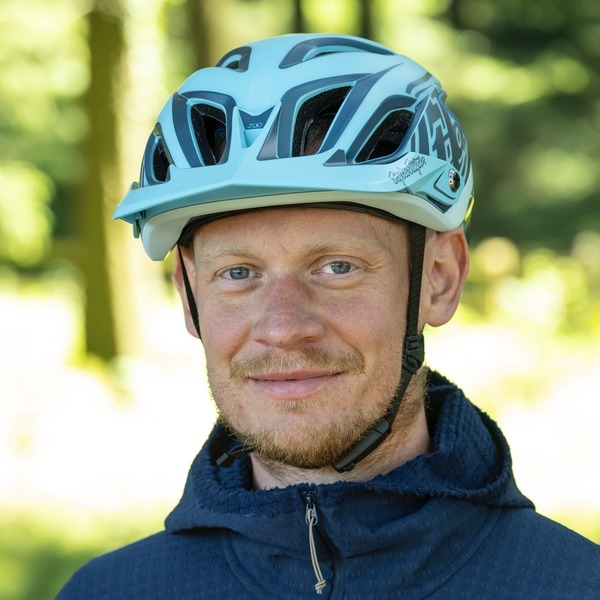Yeti has a new 'downcountry' bike, the SB115, with 115mm of rear wheel travel dolled out by its Switch Infinity link suspension that's paired with a 130mm fork.
This new 29er is aimed at riders heading out for all-day epics and even more 'extreme' multi-day marathon races, such as the BC Bike Race.
- Mondraker's 'downcountry' F-Podium DC R - Bike of the Week
- The ultimate guide to rear suspension systems
Yeti says the bike came about when its crew in Colorado were riding the SB100, released in 2018, but wanted to give it the 'lunch-ride' treatment by taking its XC platform and adding a little bit of attitude to handle those fast rides with a bit of gnar chucked in.
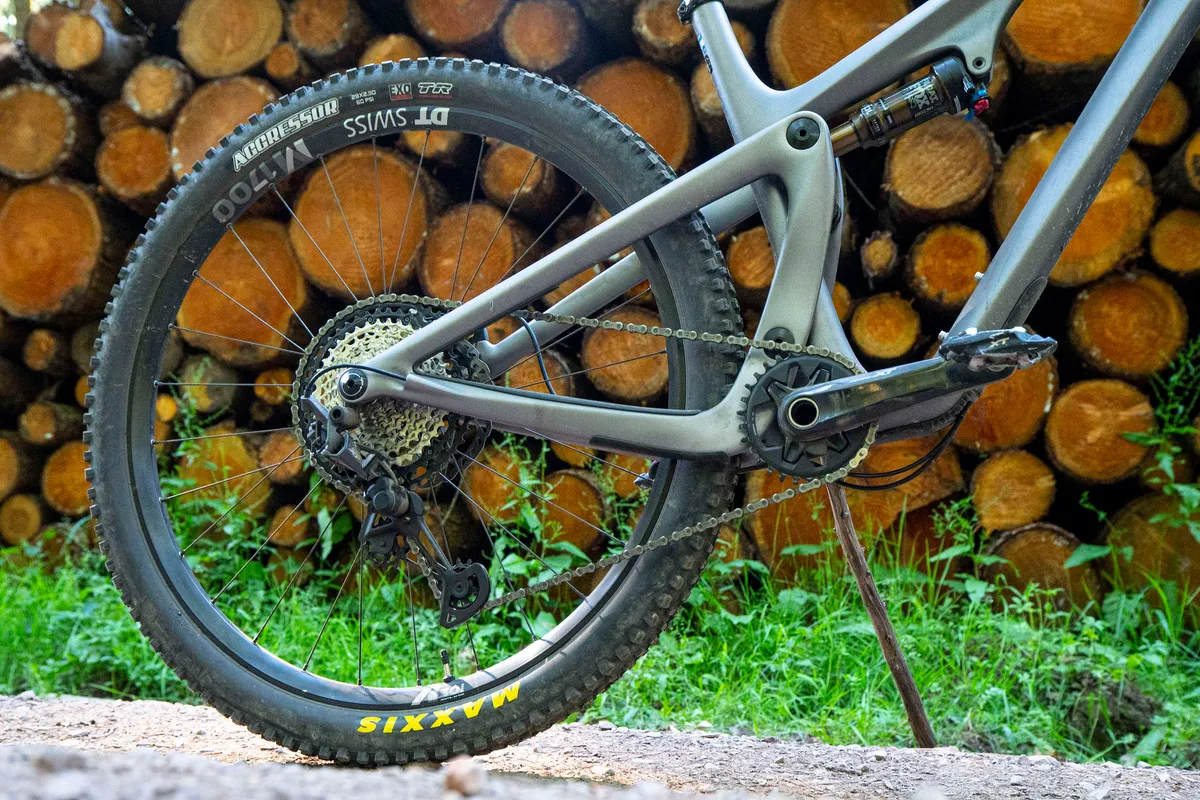
By playing around with the shocks in the SB100, Yeti realised that, with a longer stroke shock and a few other tweaks here and there, it could squeeze another 15mm travel out of the frame, with no gain in weight.
With the rise in popularity of the 'downcountry' bike, it seemed obvious to add this new type of bike to the Yeti line-up.
What is 'downcountry'?
With the continued niche-ification of the bike world, it wasn't going to be long before a new term emerged for the burgeoning world of 'rad' cross-country bikes – and we have our colleagues over at PinkBike to thank for popularising the 'downcountry' term.
It basically means a bike that's got roots in XC, but has been tuned for more capability on increasingly technical terrain.
This means longer travel forks, burlier tyres and bigger brakes plugged in to a frame that's either the same as a brand's XC bike or one that's a had a few tweaks here and there (such as a longer stroke shock to give extra travel).
They're ideal for long rides where pedalling efficiency is a benefit but where riders might still encounter steep descents and rowdy trails.
Notable other 'downcountry' bikes include the Specialized Epic EVO, Cannondale Scalpel SE, Trek Top Fuel and the NS Synonym TR.
It's clear that the SB100 plays an integral part in the design of the SB115, with near identical geometry.
Yeti says this was done to keep the snappy accelerating and capable climbing characteristics of the SB100 while adding that extra bit of capability for the descents – as demonstrated by the use of four-pot brakes, chunky tyres and bigger rotors.
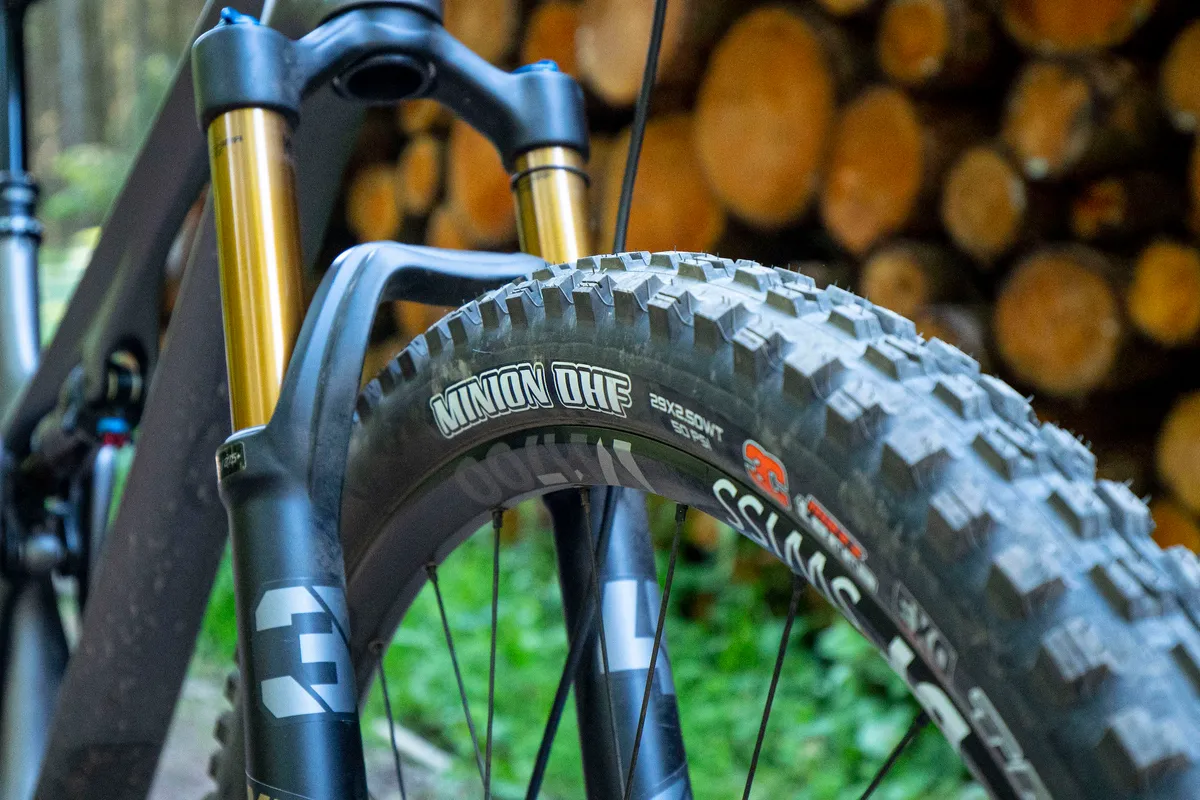
Yeti's Switch Infinity suspension
Yeti's Switch Infinity system was first seen in 2014. Its goal is to separate the suspension's shock leverage curve from the bike's anti-squat, leading to a stable pedalling bike that also performs well across a wide range of impacts.
It works by placing the rear triangle's pivot on a shuttle that moves up and down on a pair of stanchions within the frame, as the bike cycles through its travel.
The pivot moves up and then down as the suspension is compressed, giving the bike plenty of anti-squat around the sag point. This then drops off as the bike gets deeper in to its travel, reducing the impact of chain tension on the suspension.
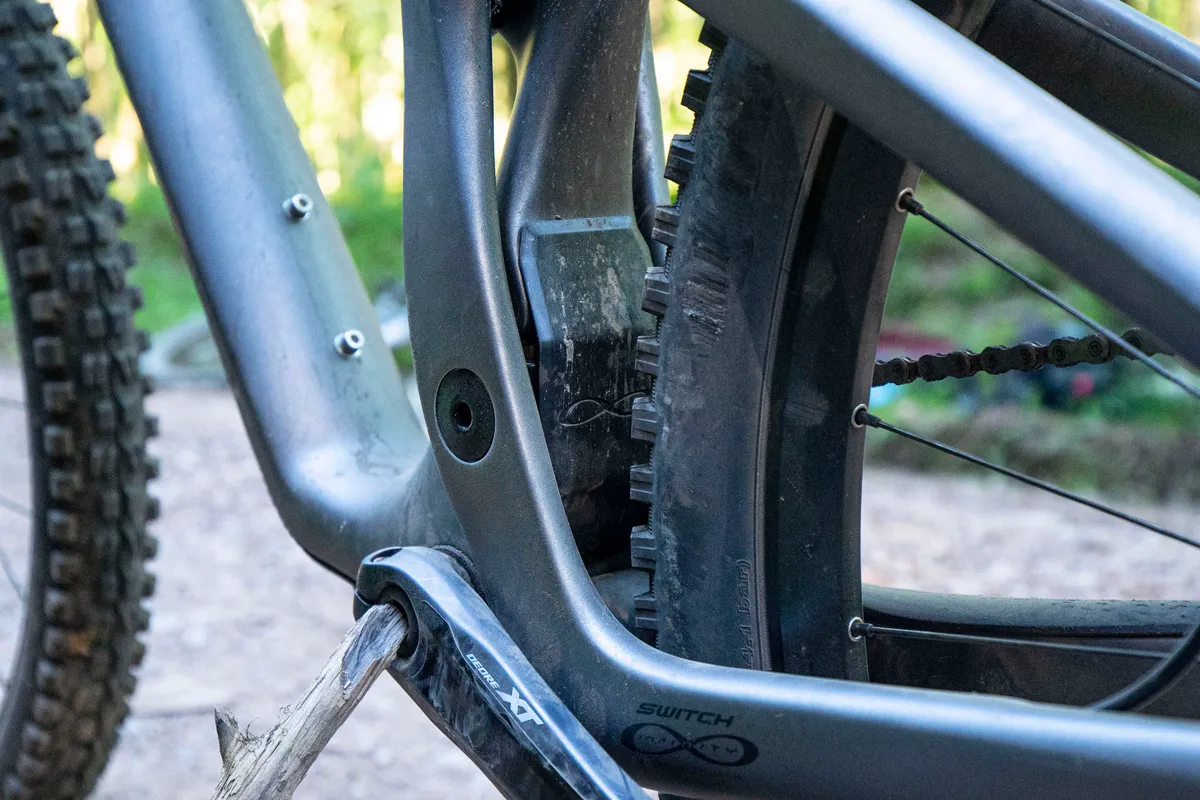
The suspension is then tuned to give plenty of mid-stroke support as well as ramp-up towards the end of its travel, to help it cope with compressions, berms, lips of jumps and heavy landings.
The shock's leverage curve is more linear than it might otherwise have been were it not for this separation between leverage and anti-squat, and allows Yeti to tune the suspension more via the kinematic than the shock's compression circuit.
The shuttle moves on Kashima coated stanchions, developed with Fox suspension, which have a 40-hour service interval, as well as a pair of grease ports to help keep them running smooth. It's all protected by a bolt-on cover too.
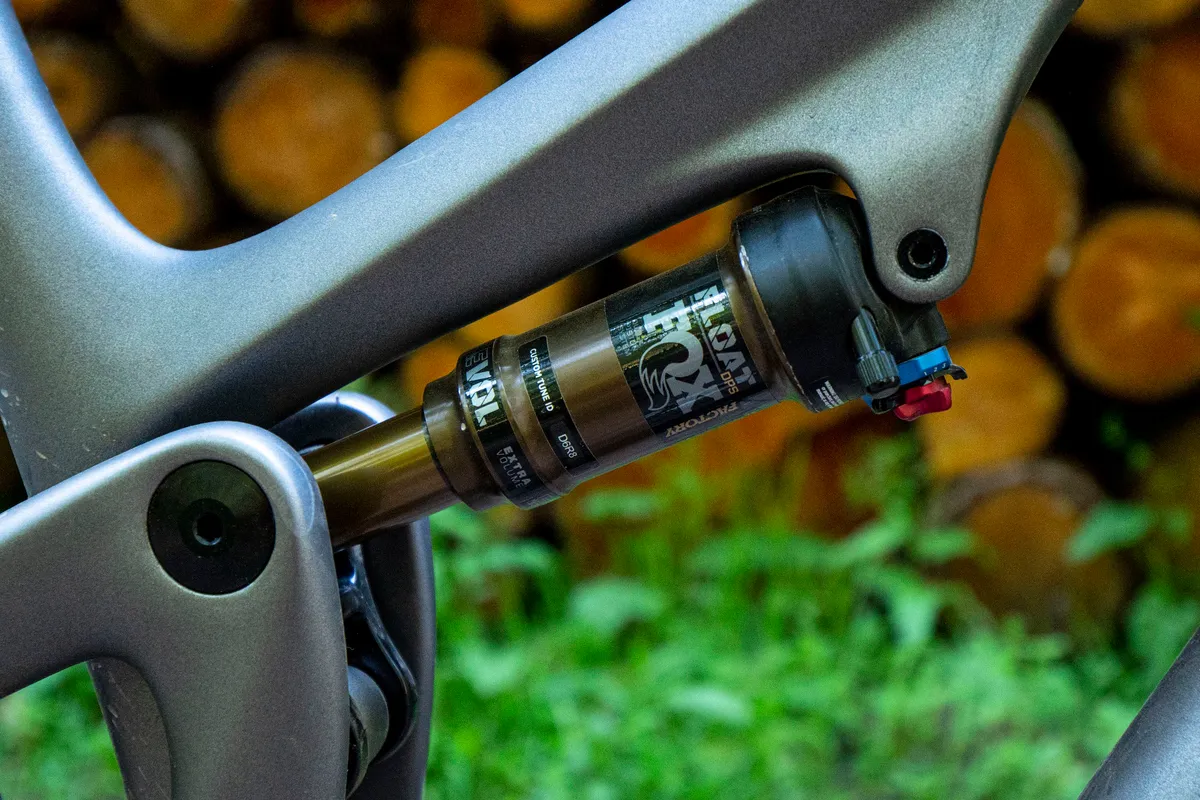
When we first saw the SB100 in 2018, the Switch Infinity link had been shrunk and rotated by 90 degrees. This shaved weight, allowed full-length dropper insertions and a bottle cage in the frame, and these are all present here on the SB115.
Frame materials and finishing touches
Like many manufacturers, Yeti offers two grades of frame: the higher-end Turq series and the Carbon series.
The main difference is the type of carbon used. The Turq frames gain a higher-quality carbon fibre, which gets a more-involved lay-up for what is said to be the perfect balance of stiffness, durability and compliance.
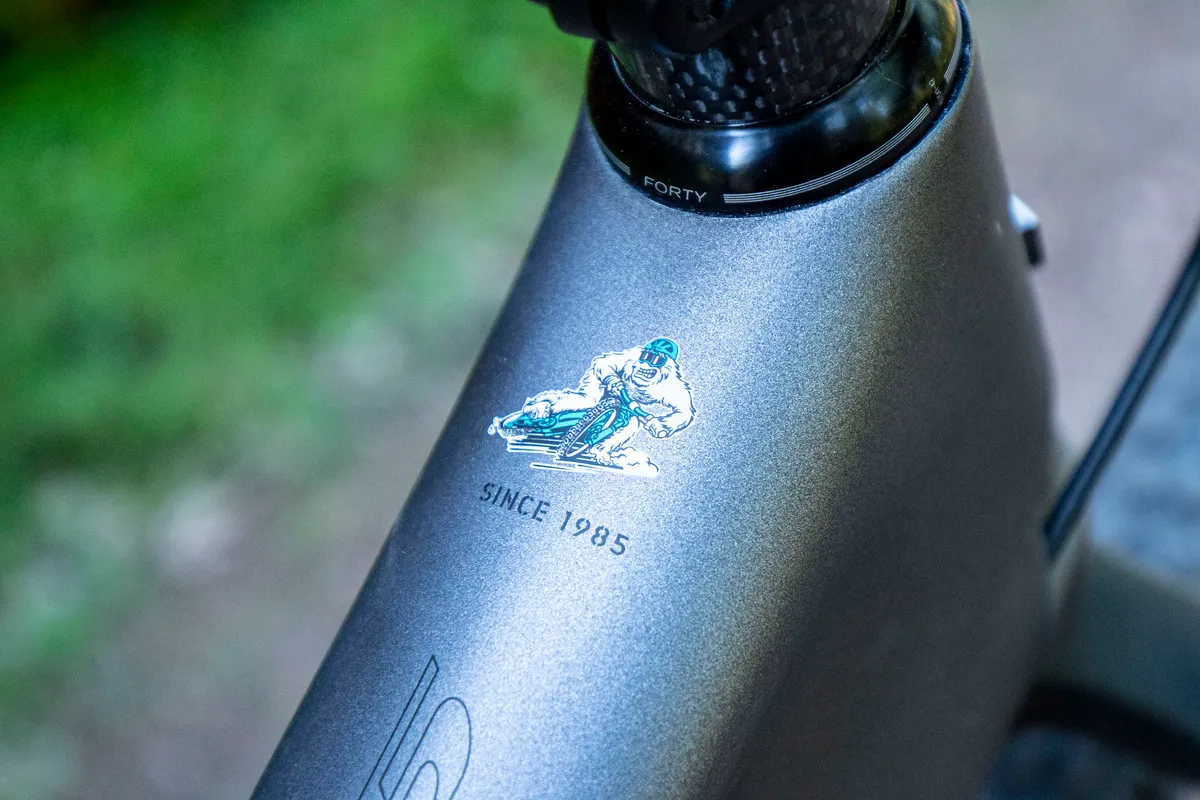
The Carbon series frames get a slightly cheaper carbon fibre as well as a modified lay-up to help keep costs down. However Yeti says that this series still maintains the strength and stiffness of the frame and with just around a 200g weight gain.
The frames themselves come with all the usual finishing flourishes; the down tube has rock-strike protection, there's internal cable routing throughout and a PF92 bottom bracket shell is fitted.

The bike will take up to 2.4in tyres and 180mm rotors, but coil shocks won't quite squeeze in.
There are ISCG05 chainguide mounts and it'll take down to a 26t round chainring (if you live next to a cliff!) or 28t oval ring. If you've super-strong legs you can fit up to a 36t round chainring or 34t oval ring.
Small bikes will come with 125mm droppers, Mediums with a 150mm dropper and the Large and XL with 175mm.
The frames also come with a lifetime warranty.
Yeti SB115 geometry
As already mentioned, the SB115 seems to share many aspects with the SB100, including large parts of its geometry.
The shape certainly isn't radical, but Yeti appears to want to keep the bike as snappy as possible.
Bikes are available in sizes Small to Extra Large, with a size Large's geometry listed below.
- Head angle: 67.6 degrees
- Seat angle: 74.0 degrees
- Reach: 450.6mm
- Standover: 731.3mm
- Stack: 628.2mm
- Chainstay length: 436.7mm
- Wheelbase: 1,180.6mm
- Seat tube length: 457.0mm
- Fork offset: 44mm
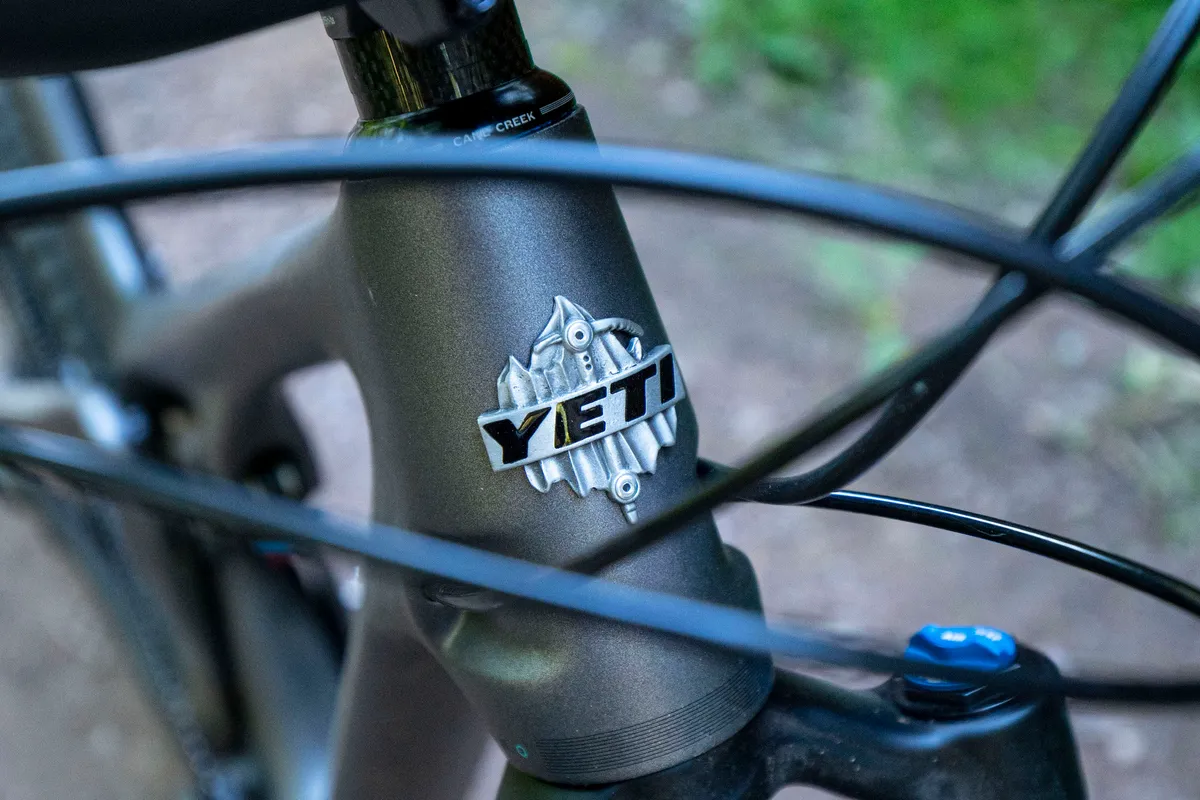
Yeti SB115 models
Yeti is offering five versions of the SB115 – three with the Turq series frame and two with the Carbon series frame.
Some models come with optional upgrades for wheels and groupsets, but you'll have to be in the US to benefit.
Yeti SB115 C1 spec and price
- Fox Performance level 34 fork and DPS shock
- Shimano SLX drivetrain
- Shimano Deore brakes
- DT Swiss M1900 wheels
- Maxxis Minion DHF (f) 2.5in / Aggressor (r) 2.3in
- Fox Transfer dropper
- Alloy RaceFace/ODI/WTB finishing kit.
- £4,899 / $4,700 / €5,590
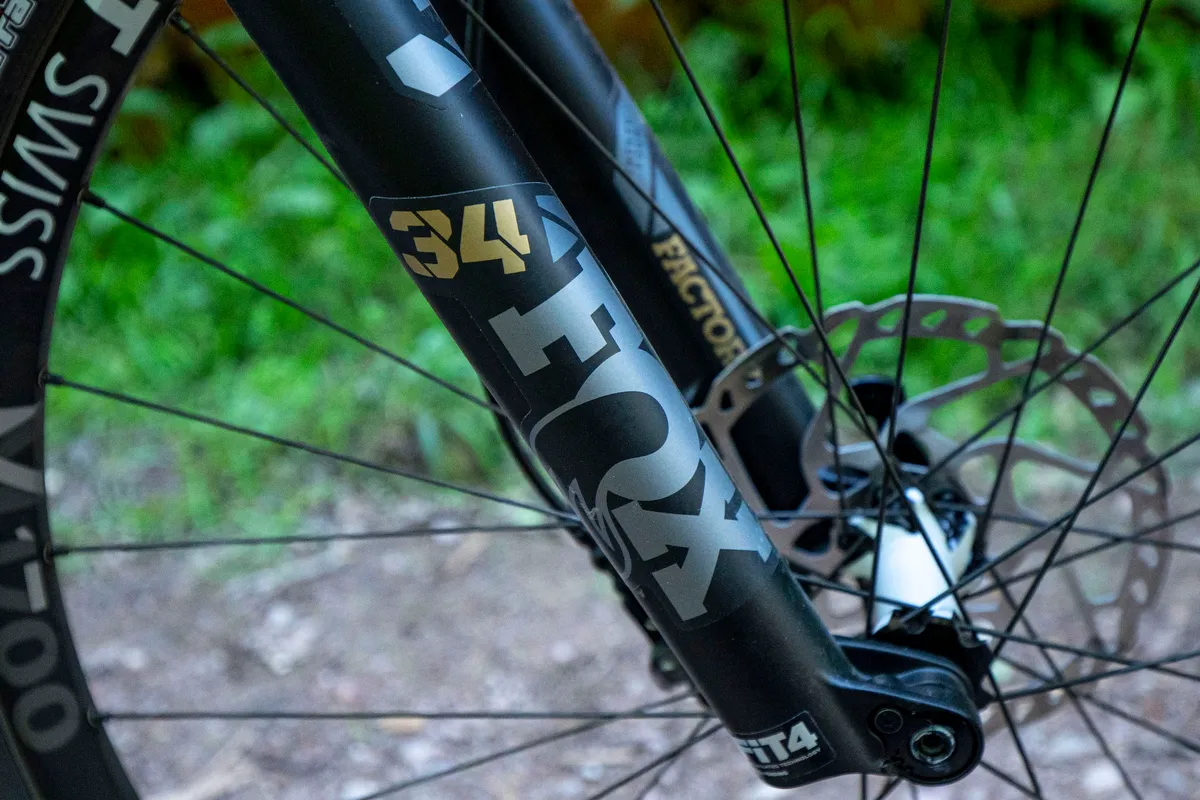
Yeti SB115 C2 spec and price
- Fox Performance level 34 fork and DPS shock
- SRAM GX Eagle
- SRAM G2 R brakes
- DT Swiss M1900 wheels
- Maxxis Minion DHF (f) 2.5in / Aggressor (r) 2.3in
- Fox Transfer dropper
- Alloy RaceFace/ODI/WTB finishing kit.
- Optional SRAM AXS XX1 wireless drivetrain upgrade
- Price $4,900 ($5,800 with AXS upgrade)
Yeti SB115 T1 price and spec
- Fox Factory level 34 fork and DPS shock
- Shimano XT drivetrain
- Shimano XT brakes
- DT Swiss XM1700 wheels
- Maxxis Minion DHF (f) 2.5in / Aggressor (r) 2.3in
- Fox Transfer dropper
- Alloy RaceFace/ODI/WTB finishing kit, with Yeti Carbon 780mm bars
- Optional DT Swiss carbon wheelset upgrade available
- £6,499 / $6,300 ($7,700 with carbon wheel upgrade) / €7,490
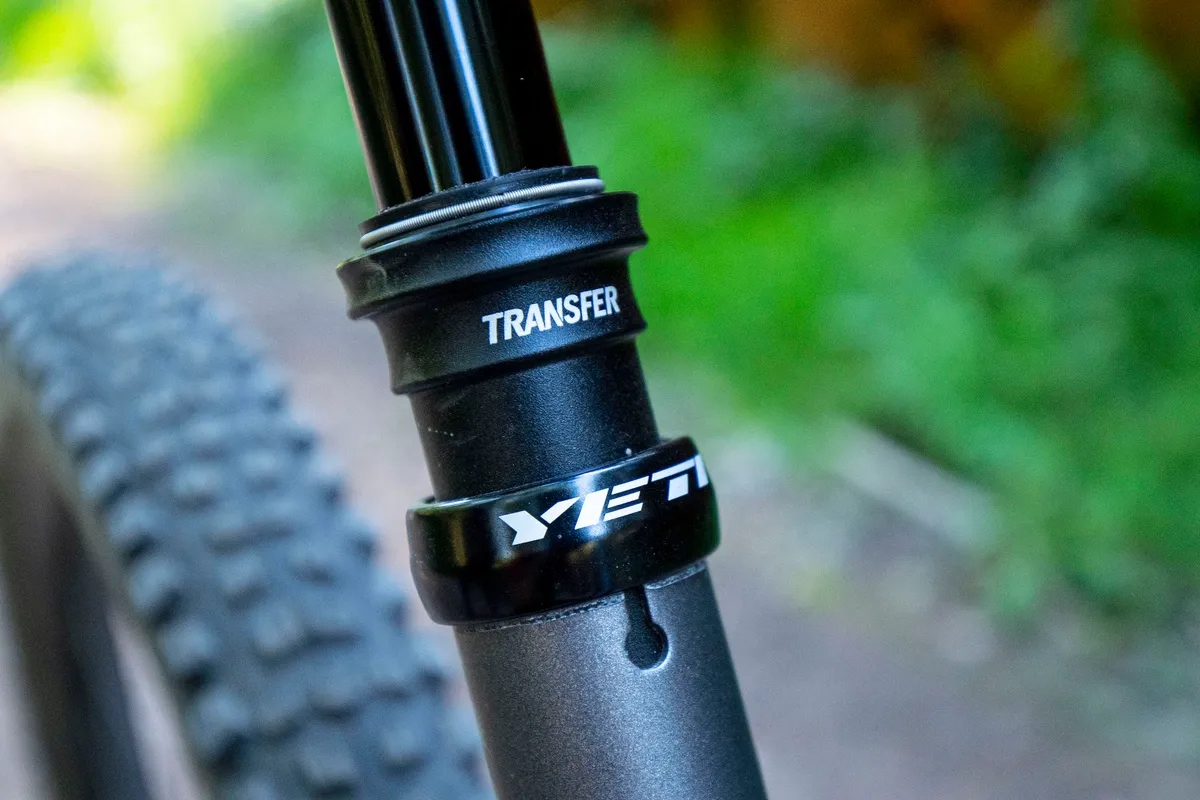
Yeti SB115 T2 price and spec
- Fox Factory level 34 fork and DPS shock
- SRAM X01 drivetrain
- SRAM G2 RSC brakes
- DT Swiss XM1700 wheels
- Maxxis Minion DHF (f) 2.5in / Aggressor (r) 2.3in
- Fox Transfer dropper
- Alloy RaceFace/ODI/WTB finishing kit with Yeti Carbon 780mm bars
- Optional DT Swiss carbon wheelset and SRAM AXS XX1 upgrade available
- £6,899 / $6,900 ($7,600 with AXS, $8,300 with carbon wheels, $8,900 with AXS/carbon wheels) / €7,890
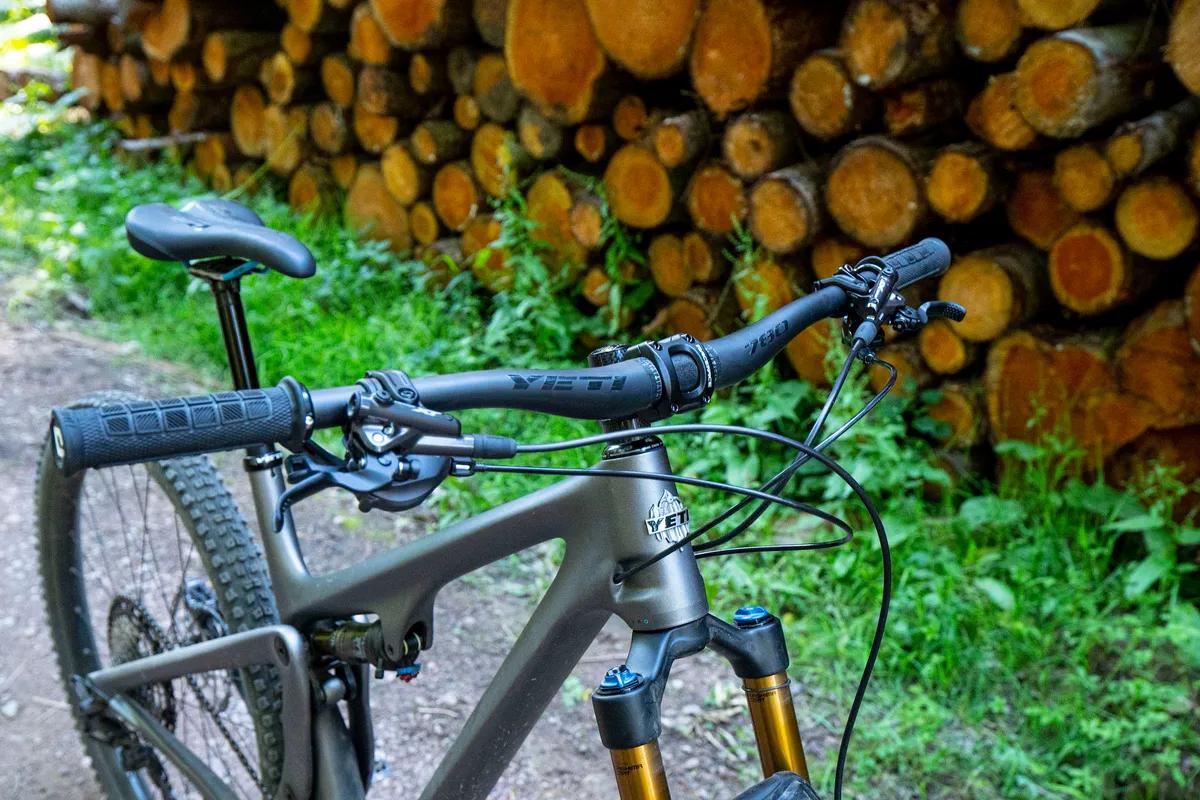
Yeti SB115 T3 price and spec
- Fox Factory level 34 fork and DPS shock
- SRAM XX1 drivetrain
- SRAM G2 ULT brakes
- DT Swiss XM1700 wheels
- Maxxis Minion DHF (f) 2.5in / Aggressor (r) 2.3in
- Fox Factory Transfer dropper
- Alloy RaceFace/ODI/Ergon finishing kit with Yeti Carbon 780mm bars
- Optional DT Swiss carbon wheelset and SRAM AXS XX1 upgrade available
- $8,000 ($8,600 with AXS, $9,400 with carbon wheels, $9,900 with both upgrades)
Yeti SB115 frame-only option
- Turq Series frameset
- £3,199 / $3,400 / €3,590
